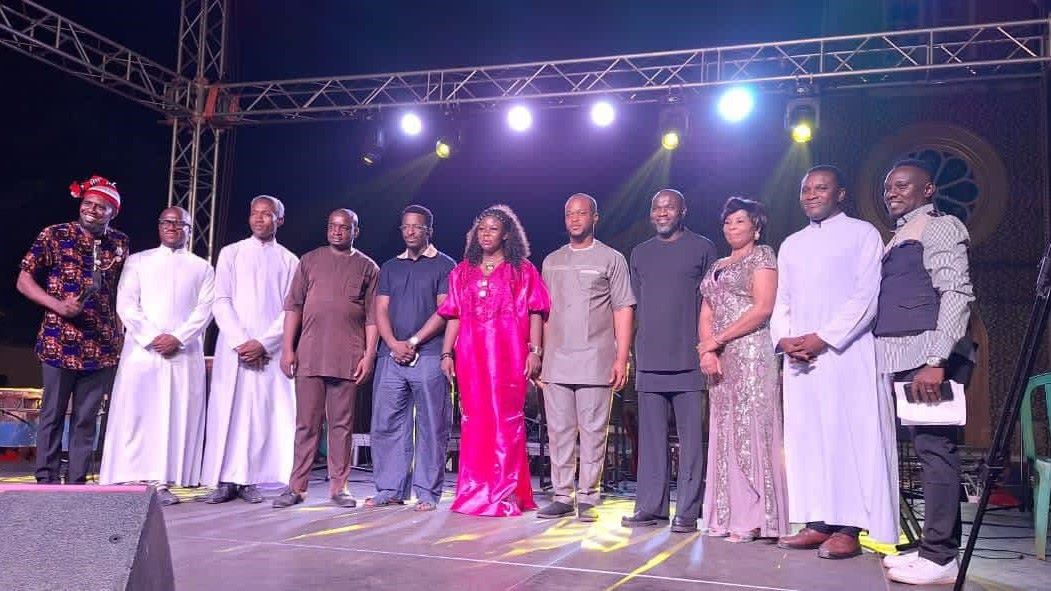Now I say that the heir, as long as he is a child, does not differ at all from a slave, though he is master of all, but is under guardians and stewards until the time appointed by the father. Even so we, when we were children, were in bondage under the elements of the world. But when the fullness of the time had come, God sent forth His Son, born of a woman, born under the law, to redeem those who were under the law, that we might receive the adoption as sons. And because you are sons, God has sent forth the Spirit of His Son into your hearts, crying out, “Abba, Father!” Therefore, you are no longer a slave but a son, and if a son, then an heir of God through Christ. Galatians 4:1-7
It was a stressful day in the office I decided to go through my phone to check for mails, news and threads; suddenly a pump up – The will of an Icon with a strict clause! As interesting as it were I perused:
The late elder statesman and fulfilled business mogul, in his will has forbidden his young widow, from remarrying. He has married her after the death of his first wife of over 40 years. The late businessman and politician married the 26-year-old pretty damsel while he was 72 at the time. After one year of his demise his will was made public. The will, which was read to the family by executor of the will, detailed how the estate will be shared among his immediate family and chosen beneficiaries.
The late business mogul bequeathed to his widow the iconic ‘Legacy House.’ However, she was expressly forbidden from selling the property and in addition to the residence, also gains ownership of Magil Furniture—a business previously run by the late first wife. The widow also inherits partial stakes in his real estate assets Interestingly, the will stipulates that the widow will automatically forfeit all these inheritances if she chooses to remarry.
What is a will?
A will or a last will and testament, is a legal document that describes how you would like your property and other assets to be distributed after your death. As a legal document it expresses the person’s (testator) wishes as to how their property (estate) is to be distributed after their death and as to which person (executor) is to manage the property until its final distribution.
Have you written your will? Do you need to write a will because you know your death is close? Or are you experiencing death threatening situations? After all, no one will leave forever. Hence, the importance of will.
Where there is no written will.
Key Dangers Of Not Having A Written Will
• Loss of control over asset distribution:
State laws dictate how your estate is divided, potentially to individuals you wouldn’t have chosen, excluding friends, unmarried partners, or specific charities.
• No control over guardianship of minor children:
If you have children, the court will decide their guardian, not you, which may not align with your preferences for their upbringing and care.
• Potential for lengthy and costly legal battles:
Intestacy often requires court proceedings to determine heirs and distribute assets, which can take months or even years, especially if heirs are difficult to locate or disputes arise.
• Exclusion of common-law spouses and stepchildren:
Intestacy laws may not recognise unmarried partners or stepchildren, potentially leaving them without a share of your estate unless specifically provided for in a will.
• Lack of a designated executor:
Without a will, no one is appointed to manage the estate, and the court will appoint an administrator, adding another layer of complexity to the process.
• Unforeseen complications with digital assets:
Without a will, you lose the ability to specify who will inherit and manage your digital assets like online accounts and digital files.
• Potential for assets to go to the state:
In extreme cases, if no legal heirs can be identified, your assets could “escheat” to the government.
• Increased family stress and emotional burden:
Your grieving family will have to navigate a complex legal process without your guidance, leading to added stress and potential conflict.
Your inclusion in God’s will!
Deut. 7:6-11
There are these people included in God’s will. They are said to be: holy people, chosen people, special people to God; preferred above every other person that are upon the face of the earth.
The selection was not based on: the multiple numbers, or because they were few, rather on the bases of love, which was initiated by God alone; because he will keep the oath he made to their father. Why did he make the oath to their father in the first place? Because he chose to.
In His expression; God saved them from their taskmaster’s hand with a mighty deliverance, this man was not an ordinary man – but the Pharoah of Egypt; who was the Pharoah of Egypt at the time? While the specific identity of the Pharaoh at the time of the Exodus is debated among scholars, Ramesses II (Ramesses the Great) is the most widely accepted candidate for the Pharaoh of the Exodus, primarily due to the biblical mention of the city of Ramesses in connection with Israelite slave labour. Ramesses II was a powerful and influential ruler known for his extensive building projects and military campaigns.
• The Venerable Stephen Wolemonwu is the Rector, The Ibru International Ecumenical Centre, Agbarha-Otor, Delta State (08035413812)






